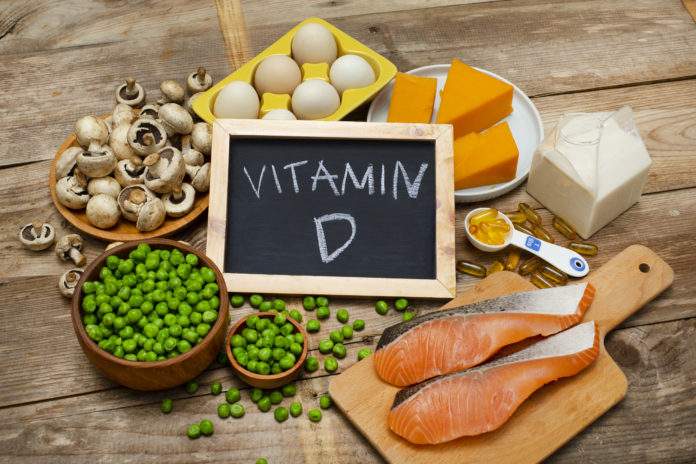Vitamin D has recently been acknowledged as an essential nutrient for proper immune system function.
Before the pandemic, most doctors uneducated in vitamin D thought it was necessary only for calcium balance
and bone metabolism. However, integrative doctors like myself have long recognized the multifunctional effects of vitamin D, including:
- normal cell division (cancer prevention, wound healing)
- controlling inflammation
- blood pressure regulation
- insulin and glucose balance
- skin health (eczema and psoriasis)
- muscle health
- cognitive decline
- immune system regulation (autoimmune disease)
- immune response (infections)
- and other conditions.
Interestingly, vitamin D has its ultimate effect on the DNA (stored genetic information) in the cell nucleus. It modulates the expression of many genes that control cell activity.
Vitamin D Fine Tuned for The Immune System
Your immune cells have receptors for vitamin D. This includes the B cells, T cells, antigen-presenting cells, and lung cells. Adequate vitamin D levels support the healthy functioning of these immune cells. In addition, vitamin D stimulates the production of proteins known as cathelicidins that disrupt the outer coating of viruses and bacteria. In addition, vitamin D promotes the activity of proteins known as defensins, which attract immune cells to an area of infection. And lastly, vitamin D has the dual function of activating inflammatory chemicals known as cytokines (which in turn increase immune activity with infection) and reducing the excessive activity of cytokines that create too much inflammation, as seen with the current virus and variants.
Understanding Vitamin D
There are two inactive precursors of vitamin D known as cholecalciferol (from sunlight) and ergocalciferol (foods). The liver and kidneys convert these precursors into the active form. Therefore, people with diseases of these organs are more susceptible to vitamin D deficiency. The skin converts ultraviolet B rays (UVB) into vitamin D3 (cholecalciferol), which is then activated by the liver and kidneys into its active form.
Reasons for Vitamin D Deficiency
- Geographical location: northern latitudes mean people have less sun exposure
- Atmospheric conditions: clouds and air pollution influence the concentration of UVB reaching people
- Clothing: the more one is covered, the less skin is exposed to sunlight
- Sun protection practices such as protective clothing, hats, staying indoors, and sunscreen reduces skin vitamin D3 production
- Skin pigmentation: people with darker skin make less vitamin D3 with exposure to sunlight
- Genetic Variations: variations in one’s genetic makeup can make them more susceptible to low levels of D3 or activated vitamin D
- Obesity: increases risk of vitamin D deficiency by storing D3 in body fat
- Absorption problems: conditions such as Crohn’s disease increases vitamin D deficiency due to absorption problems
- Magnesium deficiency: people with low vitamin D have vitamin D metabolism problems
Optimal Vitamin D Blood Level
The United States Endocrine Society notes that a blood vitamin D3 (serum 25-hydroxyvitamin D) value is sufficient with a level of 20 to 100 ng/mL. Many holistic doctors, including myself, recommend an optimal serum range of 50 to 80 ng/mL.
Elderly Especially Need Vitamin D
The elderly is at a much higher risk of vitamin D deficiency. There are several reasons for this, including the fact that many elderly stay indoors much of the time, malnutrition, absorption problems, use of sunscreen and clothes blocking sunlight due to concerns about skin cancer, and liver and kidney disease.
A study published in the journal Nutrients concluded that vitamin D deficiency is associated with more severe lung involvement, longer disease duration, and risk of death in elderly COVID-19 patients. These results are not surprising considering that previous studies have shown that low vitamin D levels are associated with an increased risk of respiratory tract infections, tuberculosis, and pneumonia. Another paper published in the Journal of Medical Virology involved a meta-analysis of 1368 COVID-19 positive patients. Researchers found that vitamin D deficiency was significantly associated with poorer patient outcomes and prognosis.
Most People Need Their Vitamin D Optimized
However, vitamin D is not just for the elderly; infants to adults of all ages have compromised immune systems if their levels are low.
Team Up with K2
I recommend my patients take vitamin K2 with vitamin D3. Vitamin D enhances calcium absorption, while vitamin K2 works to direct calcium into the bones and not the arteries. More specifically, vitamin K2 activated a protein known as osteocalcin, which binds calcium to bone tissue. In addition, K2 also activates matrix Gla protein, which prevents calcium from being easily deposited in the arteries and soft tissues.
In testing blood levels of vitamin K2, I have found that many people have low or deficient blood levels. K2 deficiency is common since it is found in foods many Americans do not consume, such as fermented soybeans. One example of a rich K2 food source is the Japanese food known as natto. In addition, vitamin K2 is synthesized to a minor degree by gut bacteria, yet many people have an imbalanced microbiome.
Research in healthy people found that K2 supplementation did not abnormally affect blood clotting. However, if you are on the medication Coumadin (Warfarin), then consult with your doctor before supplementing any form of vitamin K.
Dr. Mark Stengler is a leading Naturopathic Medical Doctor and author. He practices with his wife Dr. Angela Stengler, at the Stengler Center For Integrative Medicine in Encinitas, California (855-DOC-MARK). You can also sign up for his FREE Newsletter at Americasnaturaldoctor.com
References;
Munshi R., Hussein M.H., Toraih E.A., Elshazli R.M., Jardak C., Sultana N., Youssef M.R., Omar M., Attia A.S., Fawzy M.S., et al. Vitamin D insufficiency as a potential culprit in critical COVID-19 patients. J. Med. Virol. 2021;93:733–740. doi: 10.1002/jmv.26360.
Ren, R. , Liu, J. , Cheng, G. & Tan, J. (2021). Vitamin K2 (Menaquinone-7) supplementation does not affect vitamin K-dependent coagulation factors activity in healthy individuals. Medicine, 100 (23), e26221. doi: 10.1097/MD.0000000000026221.
Sulli, A., Gotelli, E., Casabella, A., Paolino, S., Pizzorni, C., Alessandri, E., Grosso, M., Ferone, D., Smith, V., & Cutolo, M. (2021). Vitamin D and Lung Outcomes in Elderly COVID-19 Patients. Nutrients, 13(3), 717. https://doi.org/10.3390/nu13030717
Vitamin D. (2021, January 8). Linus Pauling Institute. https://lpi.oregonstate.edu/mic/vitamins/vitamin-D

